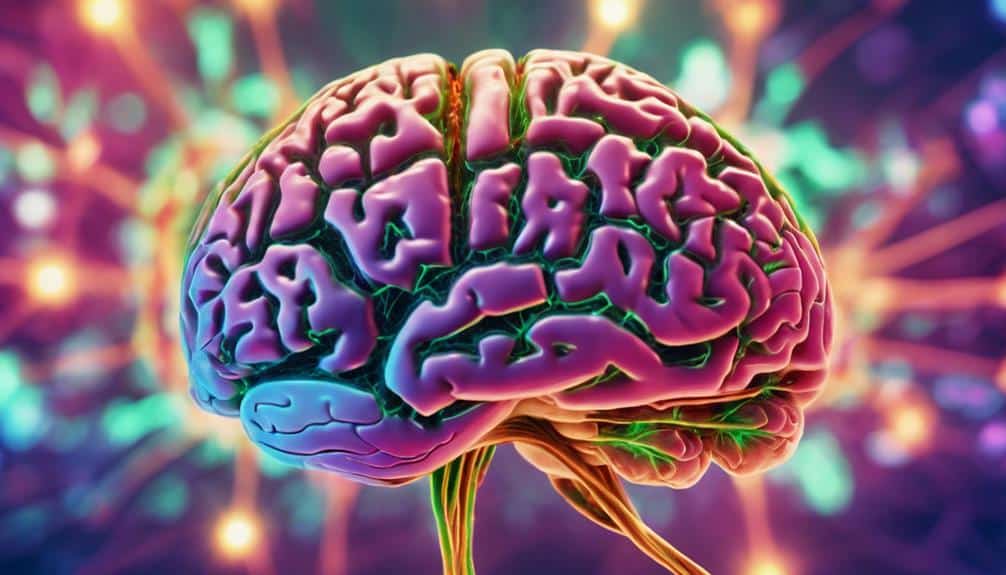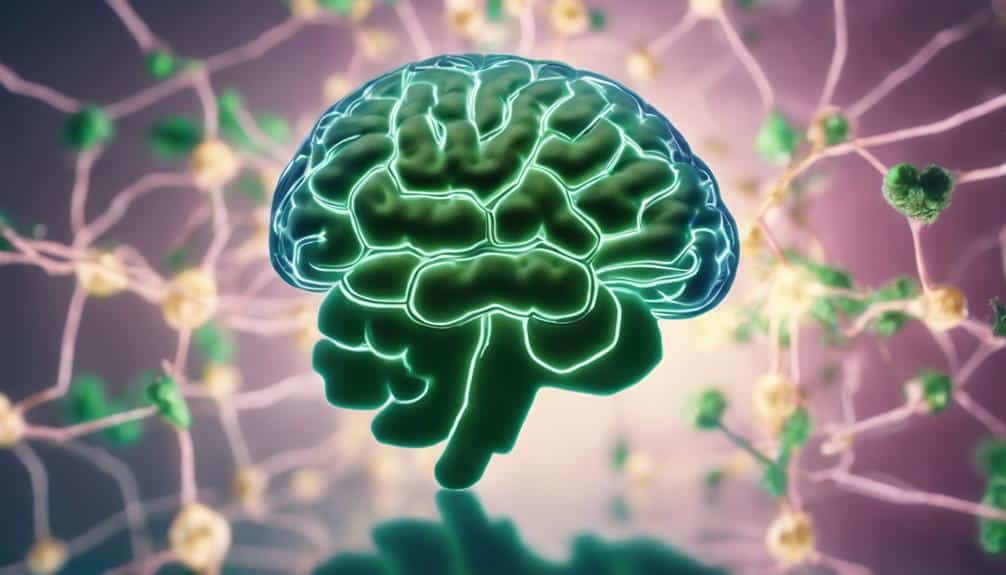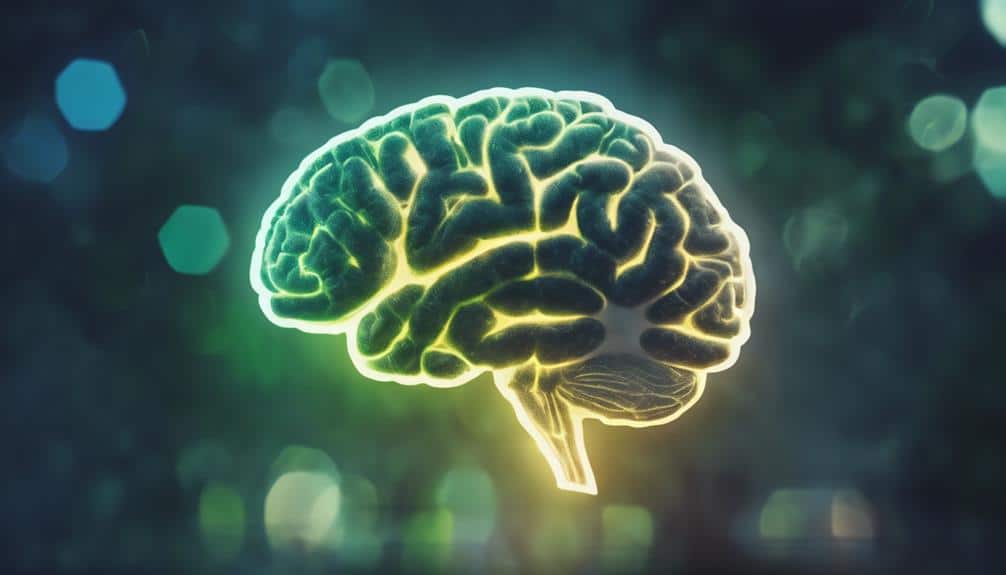You might think it’s the stuff of science fiction: a plant-based compound that can rewire your brain, potentially reducing the impact of devastating neurological disorders. But that’s precisely what CBD, a non-psychoactive component of marijuana, is doing.
Emerging research suggests that CBD could offer significant benefits in treating conditions like Alzheimer’s, epilepsy, and various mental health disorders. Before you dismiss this as just another trend, consider this: what if we’ve found a game-changer for neurological health within the humble cannabis plant?
Understanding CBD: A Primer

Before we delve into the neurological benefits of CBD, let’s first unpack what this compound really is and how it interacts with your body. CBD or cannabidiol is one of over a hundred compounds found in the cannabis plant. Unlike its infamous cousin THC, CBD doesn’t get you high. Instead, it interacts with your body’s endocannabinoid system (ECS) to help regulate various functions such as sleep, appetite, pain and immune response.
Now let’s discuss CBD extraction methods. There are several ways to extract CBD from the plant; however, ethanol extraction and CO2 extraction are most common. The former involves soaking the plant material in ethanol to extract cannabinoids while the latter uses pressurized CO2 to pull out the CBD from the plant. Each method has its pros and cons but both result in pure potent CBD extract.
Lastly, let’s touch on the therapeutic applications of CBD. Research has shown that CBD may help with a variety of health issues, from anxiety and depression to chronic pain and epilepsy. While more research is needed, the potential benefits of CBD are promising. So if you’re interested in serving others, consider incorporating CBD into your practice.
CBD’s Role in Neuroprotection
Moving on from its general therapeutic potential, let’s investigate the specific role CBD plays in neuroprotection—an arena that holds immense promise according to recent scientific studies. You might be particularly interested in how CBD could potentially support stroke recovery and aid those with traumatic injuries.
Here are four key areas where CBD’s neuroprotective qualities shine:
- Stroke Recovery: CBD can mitigate the harmful effects of strokes by reducing inflammation and oxidative stress in the brain. This creates an environment conducive to cell repair and functional recovery.
- Traumatic Injuries: The anti-inflammatory properties of CBD can help manage the aftermath of traumatic brain injuries, minimizing damage and promoting healing.
- Neurodegenerative Diseases: Although not directly related to your specified interest, it’s worth noting that CBD may slow down the progression of diseases like Alzheimer’s and Parkinson’s by protecting neurons from degeneration.
- Mental Health: Again, neuroprotection offered by CBD can extend to mental health; it could potentially alleviate symptoms of disorders such as anxiety and depression.
The potential for how much good CBD might do for brain health is compelling. As we delve deeper into this topic, it becomes increasingly clear just how promising a role it could play in neuroprotection.
Medical Marijuana and Epilepsy

When it comes to epilepsy, it’s important to note that medical marijuana, particularly CBD, has emerged as a significant tool for managing and potentially reducing seizure frequency. Studies indicate that CBD interacts with the endocannabinoid system in our brains, possibly stabilizing electrical activity and calming the rapid excessive firing of neurons that leads to seizures.
In pediatric epilepsy management, the impact of CBD is even more profound. Traditional anti-epileptic drugs often cause severe side effects; CBD presents a gentler alternative. Research suggests it’s not only effective in reducing seizure frequency in children but also improves their quality of life with fewer adverse effects than conventional drugs.
However, while there’s promising evidence, it’s crucial to consult with a medical professional before using CBD as an adjunctive treatment. More research is required to fully understand its effectiveness and long-term safety. Nonetheless, the potential of medical marijuana in epilepsy management is clear—offering hope for a more controlled future for those living with this challenging condition.
Alzheimer’s Disease: The Potential of CBD
Just as CBD has shown promise in managing epilepsy, it’s also emerging as a potential ally against Alzheimer’s disease. Current research explores how CBD’s neuroprotective and anti-inflammatory properties may help slow down the progression of this debilitating condition.
- Reduction of Inflammation: CBD could lower brain inflammation—a key feature in Alzheimer’s disease.
- Neuroprotection: Studies suggest CBD might protect neurons from damage, thereby slowing the disease’s progression.
- Promotion of Brain Cell Growth: Preliminary research indicates CBD might promote neurogenesis—the formation of new brain cells.
- Memory Improvement: Some evidence suggests that CBD could improve memory function—a critical aspect for Alzheimer’s patients.
Determining the right CBD dosage is crucial. It’s not one-size-fits-all; each individual’s needs vary. To maximize benefits, you must work with a healthcare professional to customize a dosage plan.
With a nuanced understanding of CBD’s potential, you’re better equipped to serve others—offering hope for a brighter, healthier future. As we continue examining the neurological benefits of CBD, we’ll uncover even more potential applications.
CBD and Mental Health Disorders

Moving on to mental health disorders, it’s essential to delve into the potential therapeutic benefits of CBD—particularly for conditions like anxiety and depression. Studies suggest that CBD can play a significant role in anxiety relief and depression management. However, understanding ‘how’ requires a deeper look into the brain’s intricate workings.
CBD interacts with the brain’s serotonin receptors—integral in mood regulation. Low serotonin levels are often associated with depression; thus by enhancing serotonin receptor activity, CBD can potentially alleviate depressive symptoms.
Similarly, CBD’s impact on anxiety is notable. It seems to interact with the brain’s GABA receptors, which help calm excessive neuronal firing—a common feature in anxiety disorders. Through this interaction, CBD may provide anxiety relief by reducing neuronal excitability and promoting a calming effect.
However, the relationship between CBD and mental health disorders is complex and still being explored. While initial findings are promising, it’s crucial to remember that CBD isn’t a one-size-fits-all solution. Individual responses can vary; therefore, it’s essential to consult with healthcare professionals before starting any CBD regimen for mental health concerns.
Conclusion
In the tapestry of your mind, CBD threads itself as a potent ally. It shields neurons like a knight—battling epilepsy’s storms and offering hope against Alzheimer’s encroaching fog. It’s an advocate for mental health—soothing anxious thoughts and depressive shadows. The unsung hero in medical marijuana, CBD is a promising key unlocking potential for neurological wellness. As science delves deeper into its benefits, we might just find that CBD becomes the brain’s most trusted confidant.
I invite you to explore this fascinating world of CBD and its neurological benefits with us at Fells Point Cannabis Docs of Maryland. We’re passionate about educating our community about the potential of medical marijuana. Our team of specialists is always here to guide you through your journey towards better health. Whether you’re curious to learn more or considering it as a potential health solution—we’d be more than happy to assist you! Give us a call or stop by our clinic—we look forward to meeting you!

